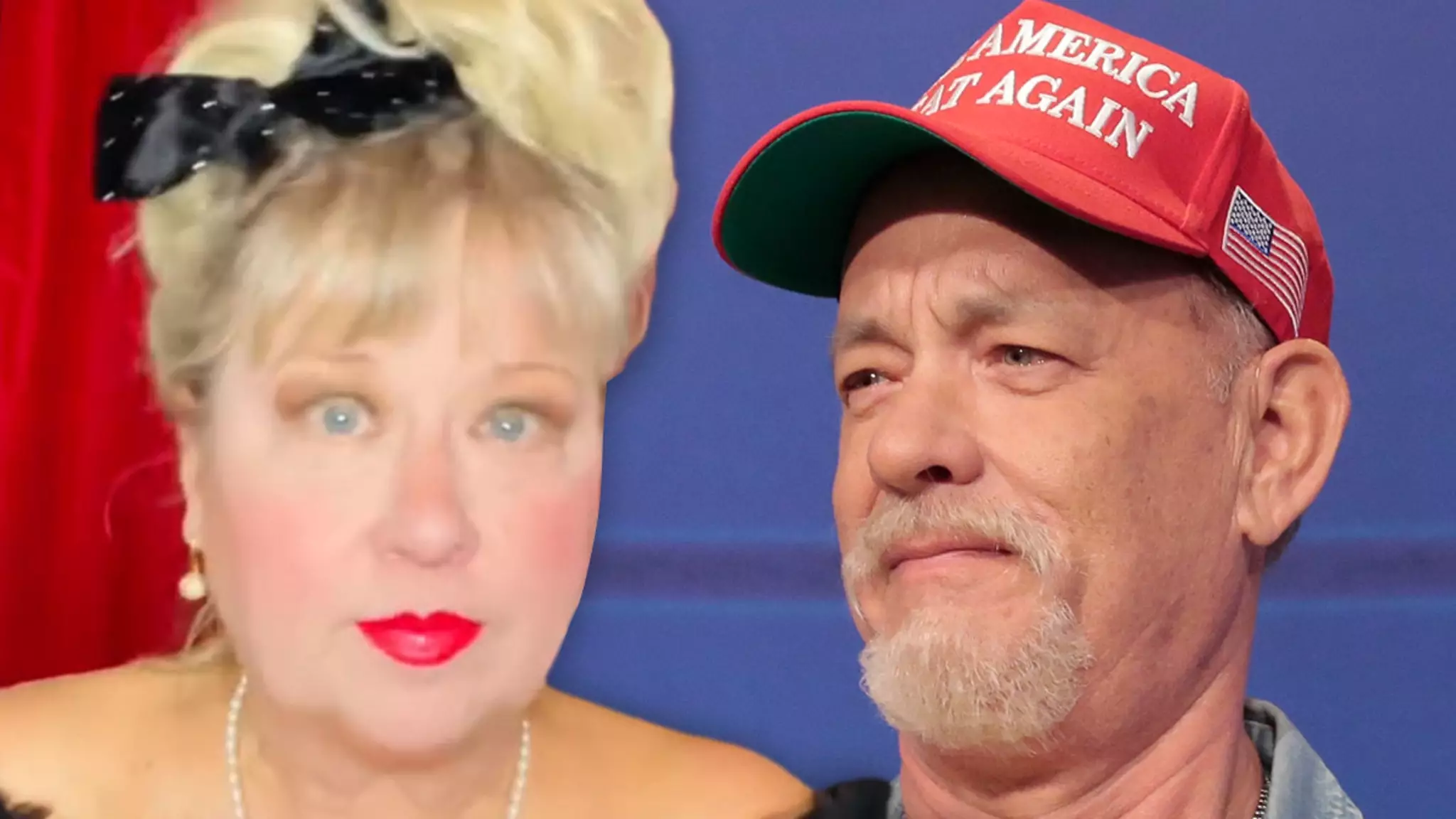In recent years, Saturday Night Live (SNL) has become a popular platform for political satire, often pushing boundaries in its comedic portrayal of public figures. However, when humor crosses into potentially offensive territory, it can invite a wave of criticism that extends beyond the screen. This past weekend, actor Tom Hanks found himself at the center of controversy after he participated in a sketch that mocked Trump supporters. The backlash was swift, particularly from former SNL cast member Victoria Jackson, who expressed her disapproval through various media channels, highlighting the complex relationship between comedy and political discourse.
Victoria Jackson, a notable figure from SNL during its late 80s and early 90s run, took to social media and news outlets to voice her dissatisfaction with Hanks’s portrayal. A passionate advocate for Donald Trump, she resonated with the sentiments shared by political commentator Link Lauren, who condemned the skit for perpetuating the notion that “MAGA = racist.” Jackson labeled the performance “stupid” and was also critical of other content in the episode that she deemed sexually vulgar. This reflects a broader division in public opinion about what is acceptable in modern comedy, especially when it touches on sensitive political topics.
Critique of the Sketch
Hanks’s skit featured him as a caricatured Trump supporter, recoiling at the prospect of shaking a Black man’s hand. Critics like Lauren have argued that this portrayal not only oversimplifies complex political identities but also reinforces harmful stereotypes. Jackson echoed this sentiment, pointing out that such representation not only alienates a portion of the audience but may also affect the show’s overall ratings. While SNL has built its reputation on taking risks, this incident raises pertinent questions regarding the ethical implications of making jokes at the expense of different political identities.
The intersection between comedy and politics has long been a double-edged sword. On one hand, comedians like Hanks have the power to highlight societal issues and spur important conversations. On the other hand, satire can easily misfire, leading to feelings of alienation among certain audience segments. Jackson’s criticism reflects a challenge for shows like SNL: in an increasingly polarized environment, how can humor navigate sensitive issues without crossing lines that provoke backlash?
The Future of SNL and Political Humor
As the entertainment landscape continues to evolve, the feedback loop between performers and audiences has become more immediate. Given the current climate, SNL may need to reassess its strategies for political satire to ensure they resonate without alienating significant viewer segments. The backlash following Hanks’s sketch serves as a reminder of the delicate balance comedians must strike and poses reflective questions about the purpose of humor in political commentary. Tom Hanks, a beloved figure in Hollywood, may need to reconsider how his choices align with the sensitivities of diverse audiences, especially as public sentiment continues to shift.

